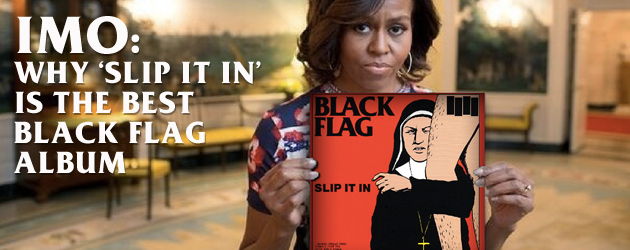Words by Ross Horton
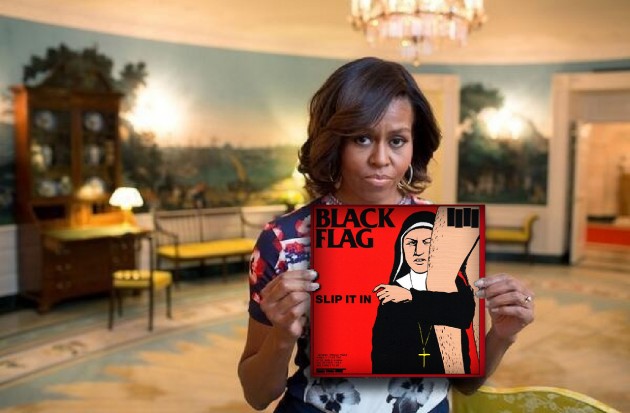
Whenever you ask someone what their favourite Black Flag record is, you tend to get a snap answer. Usually it’s one of three – the iconic (rightly so) Damaged; the brutal My War; the late-era masterpiece In My Head. Occasionally you’ll get some hardcore animal saying First Four Years. All are, of course, perfectly reasonable and perfectly righteous choices – what fan of punk music could live without any of them?
If your favourite is amongst that list, fair play and kudos to you – but when it comes to the best Black Flag album, after a little discussion people tend to come around to the idea that Slip It In is (probably) their best record. It also happens to be my favourite. Over the course of the record’s eight blistering tracks Messrs. Ginn, Stevenson and Rollins – and of course the inimitable, endlessly captivating Miss Kira Roessler – create a ridiculously tense atmosphere.
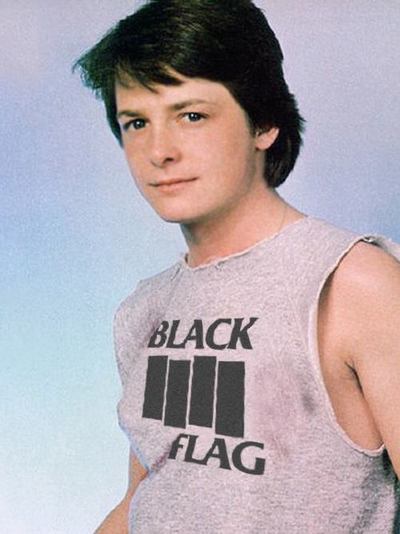 Tension, to me, is what punk’s all about. Disagreements are welcome here, of course. But to this mind and these ears, the most cathartic release that human beings tend to be able to experience – be it sonically, sexually, sensually – comes after a period of unbearable, excruciating tension. Goddamn, the record is called ‘Slip It In’!
Tension, to me, is what punk’s all about. Disagreements are welcome here, of course. But to this mind and these ears, the most cathartic release that human beings tend to be able to experience – be it sonically, sexually, sensually – comes after a period of unbearable, excruciating tension. Goddamn, the record is called ‘Slip It In’!
The terse mood of the record is its primary success: Sure, Black Flag were always about feeling powerful and feeling pointless at the same time… but Slip It In gives you tonnes of the former, an almost unbearable amount of the latter, and it’s the first record in their catalogue where Rollins’ testosterone-fuelled aggression finds its greatest outlet.
That outlet is Greg Ginn’s highly advanced, mature songwriting. The songs on Slip It In are quite frankly incredible. From the first track to the last, all of the tunes are solid gold. Ginn’s ever-expanding guitar abilities enabled his band to crash and pound away without it ever seeming like pointless, bottled fury.
The title track, which opens the record, is an exercise in genius songwriting – Ginn pits Rollins against Roessler in a fucking amazing coital showdown. The riff chugs and squeals away underneath the dramatic interplay between the two primary characters, and the two singers play their roles in superb fashion. They put so much emphasis into their respective performances that the listener feels like a grubby, squinting voyeur gawping through an open window at some illicit sexual encounter between some musclebound maniac and his more-than-willing punk princess prey.
Roessler’s yearning, seductive groans remind the listener of Kim Gordon at her sneering best, but Kira’s sexual sparring partner (in the track) isn’t Thurston Moore, it’s Henry Rollins – which flips the vibe completely. The lyrics seem to be half-condemnatory, half-celebratory towards adultery… but the singers play it in such a way that we can all see the resemblance to the kind of horrid situations we all get ourselves into sometimes. Sometimes you can’t help yourself, and the song deftly recognises that.
And then, after the night before, you’ve got Black Coffee. This is one of the more ‘conventional’ punk cuts on the record, but it’s also one of the best tracks in the Black flag catalogue. Rollins gets into an Iggy-like cyclic depressive state while drinking his black coffee and staring at the walls and imagining horrible things that may or may not be true.
Sonically, the track writhes and slashes away in a refreshingly violent manner underneath all the lyrical paranoia – don’t listen to those folks that try and taint the punk credentials of this record by slapping stupid tags on it: I’ve read ‘heavy metal’, ‘jazz metal’, ‘jazz punk’… all are bollocks, to be honest.
It’s a fitting musical (punk) backdrop for themes and events we can all identify with – paranoia, thinking you’re wrapped up in a horrible conspiracy, hating yourself, voiding out, staring at something blankly for interminable amounts of time, looking for answers that aren’t so easily found (if there are answers at all.)
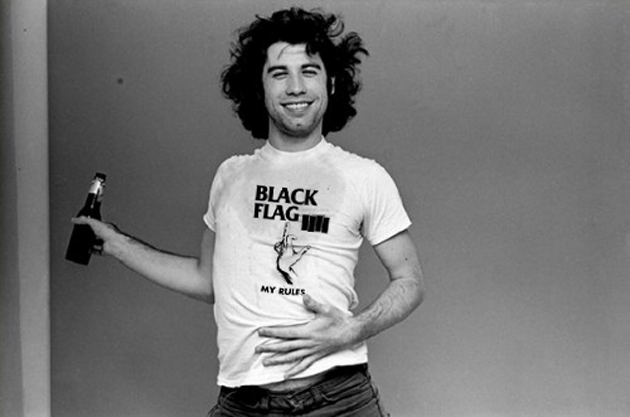
Tension, tension, tension. There’s a phrase to describe being tense: ‘Wound up.’ The third track of Slip It In is fittingly titled then, no? It’s remarkable because it’s one of Rollins’ best compositions – the guitar bends and chugs are undoubtedly down to Ginn, but the bruising sensibility has all the hallmarks of Rollins’ finest songwriting.
It’s this kind of tune that would go on to inspire grunge bands, especially Mudhoney – Mark Arm has always maintained that his favourite Black Flag albums are the later ones. The scraping guitars, the thundering drums, the streetwise slinky tightness of the instrumentation… Wound Up has it all. It’s a lithe, nefarious cut in that grinds you down and rolls over you in equal measure – the pent-up aggression Rollins conveys in his lyrics is translated perfectly when Roessler, Ginn and Stevenson lock into a groove rather than join in a clatter-fest. Who said punks can’t ‘play’ huh?
Back to Mudhoney, and can you detect the similarities between Sweet Young Thing Ain’t Sweet No More and the next track on Slip It In, Rat’s Eyes? Apart from sounding very similar riff-wise, both lumber along on a crushing slice of sludge riffing. Rollins sounds fucking demonic barking away: “I see the world through/Rat’s Eyes/Rat’s Eyes/Rat’s Eyes…”
Ginn’s abrasive tone on this cut is totally punk – it’s confrontational, belligerent and builds a tonne of tension into what would ordinarily be a mid-album slump. Of course, Black Flag had never heard of such a preposterous idea… can you find a dull moment on any of the ‘proper’ records? (I’m not counting What The… , which isn’t really a Black Flag record, or Family Man which was an important experiment but nothing more.)
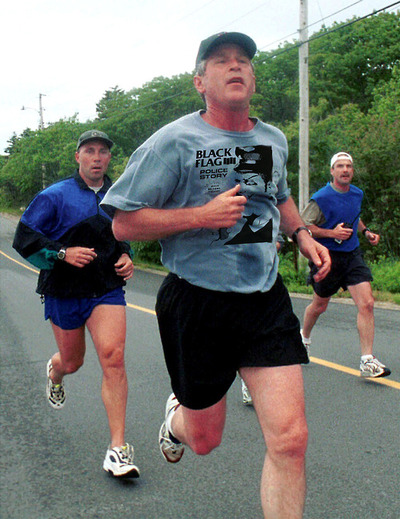 The next number is a beast – killer instrumental Obliteration. Obliteration opens with a gong-hit, and then spirals outwards with tremendous off-kilter down-tuned riffing. On this track, Ginn’s riffs roll and sway and creep and splatter with a monumental gravitas – there’s tonnes of kinetic energy going on in this track.
The next number is a beast – killer instrumental Obliteration. Obliteration opens with a gong-hit, and then spirals outwards with tremendous off-kilter down-tuned riffing. On this track, Ginn’s riffs roll and sway and creep and splatter with a monumental gravitas – there’s tonnes of kinetic energy going on in this track.
Some call Ginn’s fretboard explorations noodling, some call it pioneering – either way, it sounds awesome, as though the track is careering towards some kind of inevitable doom. Stevenson’s complex drumming is taut and locked-in at all times – it deserves highlighting here because he’s obviously tied into his leader’s madman guitar pyrotechnics.
The Bars! Roessler kicks the record back into gear with a monstrous bass groove before Stevenson drops in with a tight-as-fuck rhythm and Ginn rocks up with his best Ron Asheton impression, all guitar-grating and squealing solo jamming. Rollins’ jagged lyrics go back to their paranoiac comfort zone while some A-grade hardcore punk crashes around him. It’s the most ‘Black Flag’ song on the record i.e. it wouldn’t be out of place on My War or Damaged, likewise In My Head… but it’s place here on Slip It In practically assures the guarantees I made earlier.
If you’re one of those Luddites that doesn’t own an iPod or any portable listening device (I am one such heathen) then The Bars would be a shoe-in for any Black Flag mixtape you’d ever care to put together. It’s that good.
The fact that it’s completely unrepresentative of the album it belongs to only adds to its charm, in my view. Why bother regressing so obviously, you could ask, but the answer is clear: because they kill hardcore punk every time. They kill it.
The hyperspeed thrashing of My Ghetto would go on to inspire numerous grindcore acts – it has a furious, undeniable pace, a blazing rhythm and a searing, shrapnel-sharp guitar assault. At only just over 120 seconds, it’s the shortest track on the record… and the stone-wall refutation that Black Flag couldn’t do punk after My War, if any were needed.
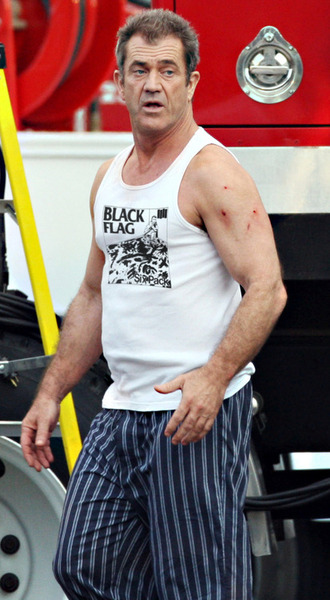 The ferocity and chaos of the track is carefully orchestrated and the focus and intensity they imbue the track with is staggering. Imagine what it’s like to be hearing that for the first time, you know? It’s a fragment of hectic, ripping punk that says and does all it needs to before it fucks off and leaves one final titanic number to close the album out.
The ferocity and chaos of the track is carefully orchestrated and the focus and intensity they imbue the track with is staggering. Imagine what it’s like to be hearing that for the first time, you know? It’s a fragment of hectic, ripping punk that says and does all it needs to before it fucks off and leaves one final titanic number to close the album out.
That gargantuan slice is You’re Not Evil – imagine throwing howling MC5 garage rock in a blender with Blue Cheer’s crushing blues-rock, then dicing it up and stretching it out. Here you find Black Flag going against any expectations of what it means to be ‘punk’, but totally embodying the very ethos of ‘punk’ in their sheer distaste for close-minded musical bigotry.
Sure, it can seem ‘progressive’ – but ‘progressive’ doesn’t mean it’s ‘prog-rock’, you dig? It’s got more in common with the Dead Boys than Jethro Tull. The Stooges made tracks this long with regularity, and they’re the daddies of punk.
Ginn’s guitar playing kicks it to another level on You’re Not Evil – he synthesis salty acid-rock tones with a blistering metallic aura and practically innovates and shimmies with each passage of the track. It’s a moment of undeniable brilliance on an album full of them – and certainly the most interesting album closer Black Flag ever did (bold, I know, but hey.)
Slip It In is one of the best punk albums of all time, and it holds up against some of the better-known and better-loved iconoclastic records of 1984 (even My War, also released in 1984!). In 1984 Meat Puppets released the unquestionable masterpiece II, Hüsker Dü released the kaleidoscopic masterpiece Zen Arcade, St. Vitus released their epochal self-titled debut… And they’re just SST’s releases in 1984! Greg Ginn’s label! Unreal ain’t it?
Without Black Flag, music would be a dire place. Punk would be vastly different, without a doubt. I know Grant Hart blames Rollins for bringing ‘jocks’ into hardcore and thus ruining it – but he also brought a whole generation of angry, paranoid kids into the scene… and those kids would eventually pioneer the music of the following generation.
If you are interested in guitars, punk rock, rock, the female contribution to punk, the interplay between the sexes in music, the art involved in playing aggressive music… you have to get Slip It In. You have to cherish it. You have to consider it amongst the pantheon of rock and roll’s finest records. Ignore the bullshit that Ginn has got up to in the intervening years, ignore the lazy accusations that they abandoned punk, ignore any hate and believe this: Slip It In is Black Flag’s greatest album. Dig that.
